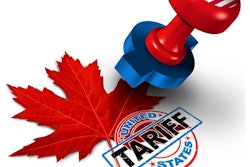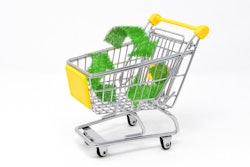
Americans believe they are shouldering the financial burden of tariffs through higher prices, with nearly half saying they're paying more than acceptable amounts for pet food and supplies, according to a survey by L.E.K. Consulting.
The strategy consultancy surveyed approximately 2,000 U.S. adults and found that 68% of consumers believe they are paying for tariffs themselves. When asked about specific product categories, 48% said they feel they're paying more than acceptable prices for pet food and supplies.
In response to perceived price increases, 27% of consumers reported they will spend less on pet food and pet supplies in the coming months.
Beyond reducing spending, consumers indicated they plan to trade down to lower-priced options across multiple categories. While the survey did not break out trade-down percentages specifically for pet products, significant numbers reported they would buy lower-priced brands in other consumer goods categories.
"Interestingly, consumers plan to navigate high prices and to cut spending by trading down to lower priced brands in a number of categories, instead of just curtailing purchases – a phenomenon that consumer companies should be monitoring closely," said Laura Brookhiser, managing director at L.E.K. Consulting.
The survey also found that only about a quarter of respondents expect their financial situation and discretionary spending ability to improve over the next 12 months.
Brookhiser noted that effective brands and retailers should set prices to reflect the benefits consumers actually feel rather than simply adding cost mark-ups or matching market prices.
"This approach will enable the company to maintain its margins in places where genuine differentiation exists, for instance, sustainability credentials or limited-edition collaborations. It also will help the brands signal fairness to the customer and enable them to flex prices by channel or consumer cohort," Brookhiser said.
L.E.K. Consulting conducted the survey during summer 2025 with a nationally representative, demographically balanced sample to assess evolving consumer perspectives on tariffs since April.



















